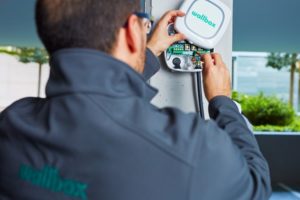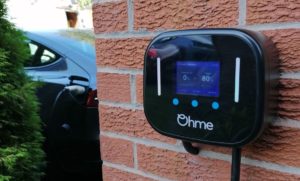As electric vehicles (EVs) become more popular, the demand for home EV chargers is increasing. With so many options available, it can be confusing to determine which type of home EV charger is best for you. In this blog post, we’ll explore the two main types of home EV chargers: tethered and untethered, and help you determine which one is right for you.
Tethered EV Chargers
Tethered EV chargers are chargers that come with a cable attached to the unit. The cable is plugged into the vehicle and the other end is plugged into the charger. This type of charger is also known as a “plug-in” charger because you simply plug it into your vehicle to start charging.
One of the main advantages of tethered EV chargers is that they are convenient to use. There’s no need to carry a separate charging cable with you because the cable is already attached to the charger. Additionally, tethered EV chargers are typically more durable and have a longer lifespan compared to untethered chargers.
Untethered EV Chargers
Untethered EV chargers, also known as “corded” chargers, do not come with a cable attached to the unit. Instead, you use your vehicle’s charging cable to connect the vehicle to the charger.
Untethered EV chargers are typically more portable and easier to store than tethered chargers. This is because they don’t have a cable attached, which makes them more compact and easier to transport. Additionally, untethered EV chargers are often less expensive than tethered chargers, making them a more affordable option.
Which Type of Home EV Charger is Right for You?
The type of home EV charger you choose will depend on your personal preferences and requirements. If you’re looking for a convenient and durable option, a tethered EV charger may be the right choice for you. However, if you’re looking for a more portable and cost-effective option, an untethered EV charger may be a better choice.
Before making a decision, consider your charging habits, the type of vehicle you own, and your budget. It’s also important to consider the charging speed you need and the available power supply in your home.
In conclusion, both tethered and untethered home EV chargers have their advantages and disadvantages. By considering your personal needs and preferences, you can determine which type of home EV charger is right for you and ensure that you have a convenient and reliable charging solution for your electric vehicle.


